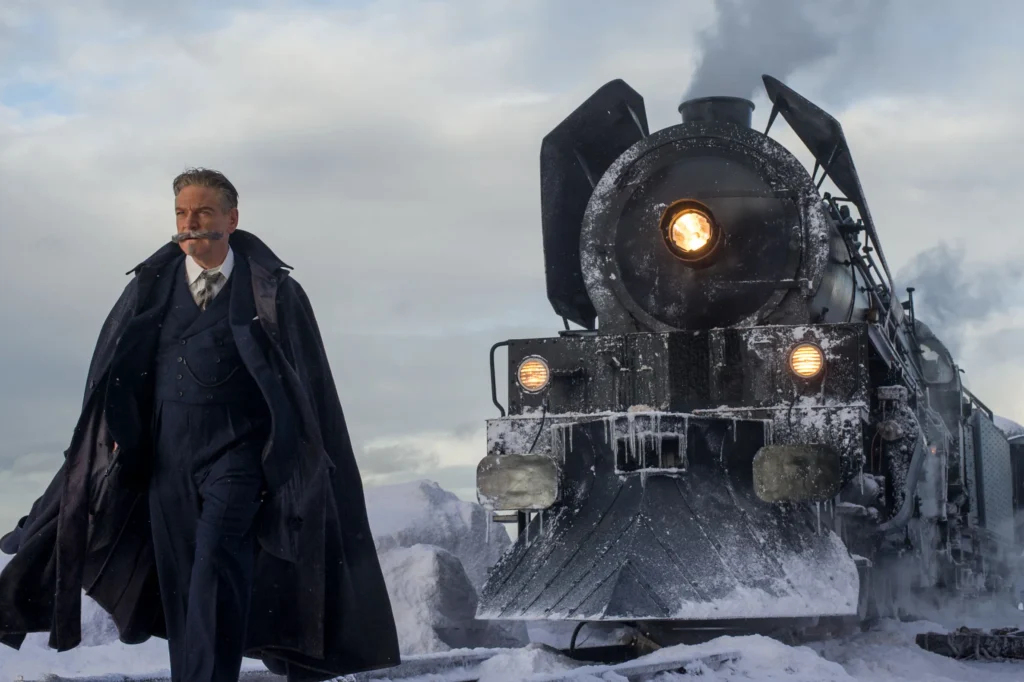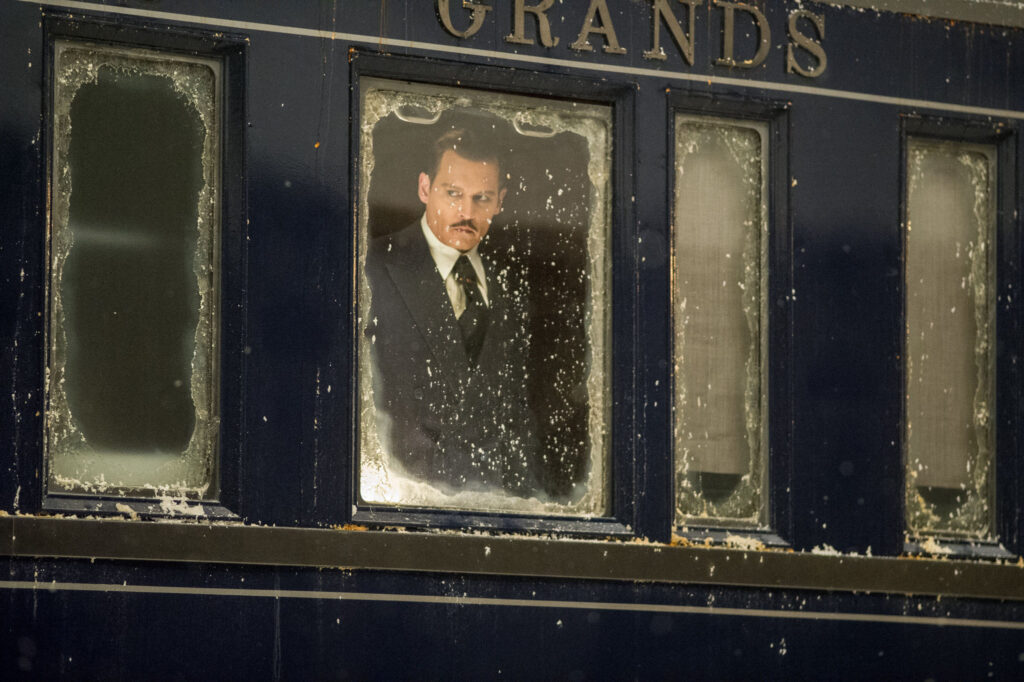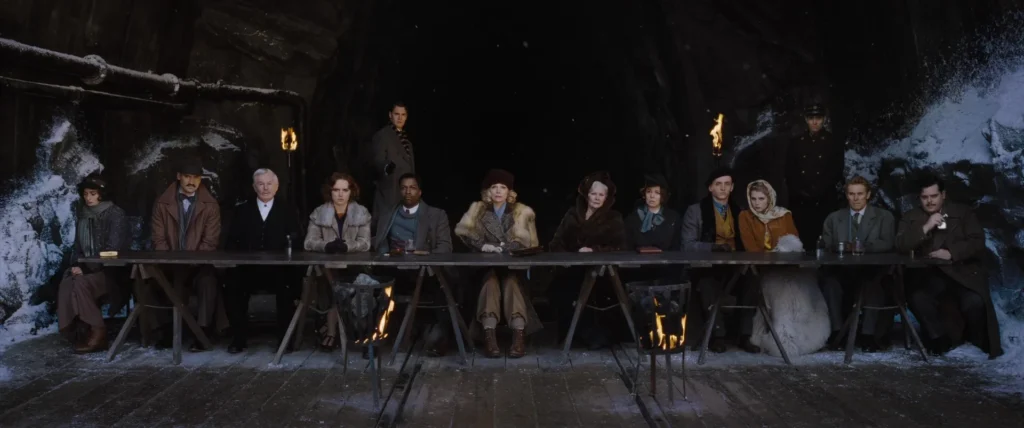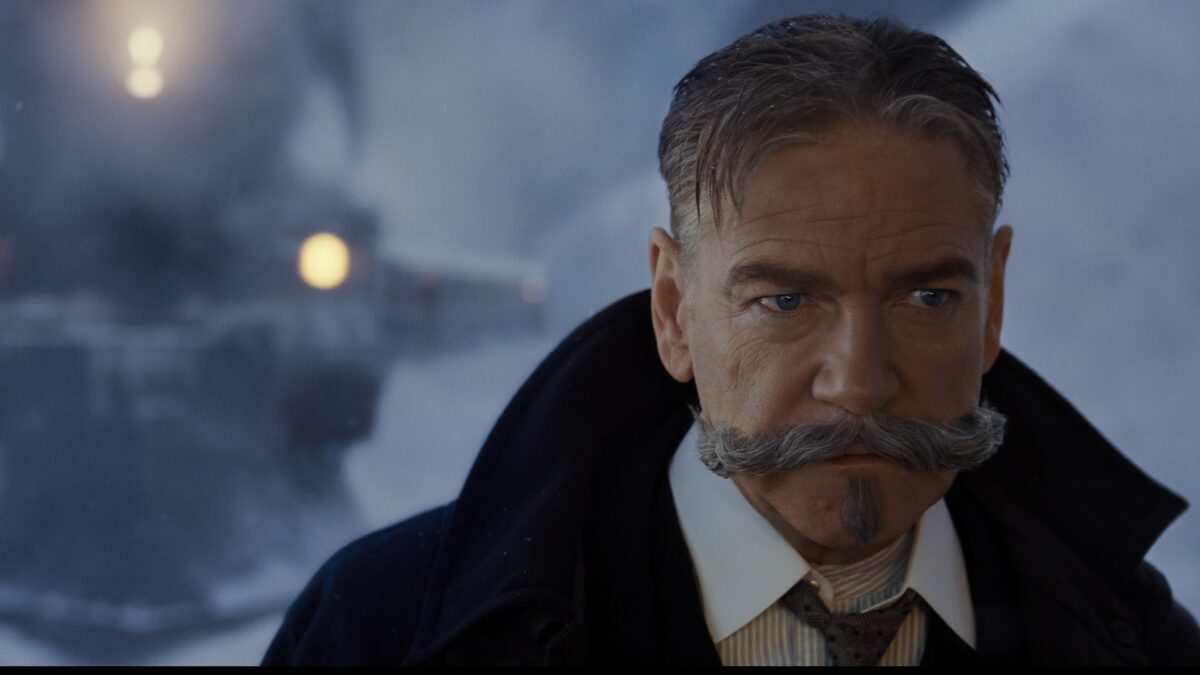The impossible could not have happened, therefore the impossible must be possible
Kenneth Branagh loves English literature more than I do and more than you do. He sees it as expansive and malleable and personal as the general human experience. I think this is why his instinct is to always zag against the conventional reading of a material. You will often see this described as “misunderstanding” the source, but I don’t think that is right. If anything, I think the claim that Branagh does not properly understand the singular obsession of his filmmaking career says more about the person making the claim it does about Branagh. No, Branagh does not “misunderstand” the material he adapts, but I think he intentionally pushes away from consensus tone and texture of beloved works. He does it, in part, to show that these beloved works can be more than what we’ve pigeonholed them to be. This doesn’t mean Branagh’s vision is wrong, nor that it’s right. That’s part of the point, I think.
Consider Branagh’s wonderful take on Hamlet. Branagh steers away from Olivier’s canonical, Best Picture-winning interpretation at every turn, both in visual construction and storytelling. To my eyes and ears, he pays more respect to the totality and multitudinousness of Hamlet (the character and the play) than Olivier. But it puts Branagh’s adaptation in an uncomfortable, challenging position: It simultaneously rewards (even presumes) a familiarity with the source and its well-regarded renditions, while bristling against precedent in a way sure to perturb those who love those previous adaptations. That’s why, I think, most of his literary adaptations inspire mixed review and scathing Letterboxd screeds from English majors. It takes a certain open-mindedness to reconcile Branagh’s devotion to the source with the way his interpretation thumbs its nose at the assumptions of its audience.

We see this cycle repeat itself in his adaptation of Agatha Christie’s second-most-famous mystery story (behind And Then There Were None, as we like to call it these days). Murder on the Orient Express is not a violation of Christie’s novel, but it does intentionally push against many of the expectations that viewers familiar with the novel and past adaptations would likely bring. And that, I think, is the root of the very mixed reception and legacy of this rather striking and bold mystery film.
Start with the tone: Christie’s prose style is dry, bordering on snarky and aloof. Thus, Hercule Poirot (Branagh) is easy to read as the same. But Branagh plays him as introspective and quirky and intense, revealing more homage to Sherlock Holmes than you might expect from the novel or from Sidney Lumet’s 1974 adaptation starring Albert Finney. Branagh the actor is a particular contrast to Finney, who played Poirot as a harried cartoon, whereas Branagh renders Poirot as a man whose compulsion to solve mysteries is a wearying burden, a mirror of all men trying to find order in this chaotic world.
Branagh sets you up to know he’s doing things his own way in the first few minutes with a literal horse shit joke that serves a few purposes: First, it’s a slight bit of audience alienation — all you Poirot lovers will find my spin irreverent and almost impish, Branagh declares. But it has symbolic purpose, too: life is messy and stinky. This gag also reveals Branagh’s take on Poirot’s OCD-like obsession with order even when it’s self-defeating — a second step in poop makes a bigger, unnecessary mess, but it keeps the balance.
I’m not the first to observe that this Murder on the Orient Express actually plays as the ultimate Hercule Poirot film. I mean “ultimate” in the sense of “final” (an elegiac, end-of-an-era, cusp-of-war tone pervades the film) and in the sense of “heightened,” particularly in its themes. Christie’s entire oeuvre comprises cozy, puzzle box mysteries. Yet this Murder on the Orient Express is all about how violent crime is not a simple puzzle to be solved by a logician, but a fracturing of the human soul that ripples outward. The very nature of Poirot’s purpose as detective is investigated. Justice becomes impossible once ruptured by cruelty. An eye for an eye; two boots in shit; a bleaker world.

The result is by far the most fascinating and rich Poirot story I’ve ever encountered in text or on screen. Branagh’s absolutely outstanding performance as Poirot aids significantly in this. I haven’t seen enough of Branagh’s acting to definitively declare this a career acting highlight, but it definitely has my consideration as such at the moment, even over Hamlet. He captures a spiritual exhaustion in Poirot without sacrificing the tics that made him such a memorable and fun detective to follow. (Although… I can’t believe I’m saying this, but the makeup designers got maybe 10% carried away on the mustache. Who knew too much mustache on a Poirot was even possible.)
I’m a little more mixed on Branagh’s direction than his acting, though I still like it quite a bit. He simply refuses to let the film devolve into medium eye-level shots of people talking on a train. I’d even say he over-directs the film: Just let us hang with the cast for a few minutes, my man! But the result is much more dynamic and unpredictable as a visual object than you’d expect of a cozy mystery. It’s kinetic, even. The story boils down to a couple dozen conversations, and yet the camera is flying high and low, close and far. The blocking is unconventional and engaging. We get extended tracking shots of characters peering through the grid of train windows, subtly reminding us that each time we meet a character, we’re getting just a small glimpse into their lives. Branagh even throws two or three little action scenes in there to shake the film out of its rhythm. This is unconventional for Christie adaptations, but small and well executed enough not to be a distraction.
The production is excellent, too. The early 20th century costume work is delightful. The snowy exteriors have a little bit of CGI gloss to them, but provide good contrast to the shadowy interiors. The color grading is intense, full of mahogany colors and glowing skin tones. Like the direction itself, the production is a little bit much, but very good.

Of course, half the fun of any mystery story, and particularly Murder on the Orient Express, is the cast of suspects. This adaptation delivers a lot of star power, with everyone delivering solid performances. Familiar faces include, in no particular order, Daisy Ridley, Michelle Pfeiffer, Johnny Depp, Olivia Colman, Judi Dench, and plenty more. My favorite minor turn is Dafoe as a doctor with a shady past, though it’s never a surprise when he elevates the surrounding material. Pfeiffer delivers on a really meaty role. Penelope Cruz really charmed me with a performance that makes great use of her wonderfully expressive eyes.
Murder on the Orient Express is handsome, satisfying, and occasionally perplexing. I’m not even sure how I’d react to it in a vacuum, without knowing Branagh is its architect. But Branagh once again challenges the audience to expand their understanding of an iconic piece of literature, and once again delivers greatness that increases my appreciation of both the source and the director.
Is It Good?
Very Good (6/8)
Dan is the founder and head critic of The Goods. Follow Dan on Letterboxd. Join the Discord for updates and discussion.


8 replies on “Murder on the Orient Express (2017)”
“whose compulsion to solve mysteries is a wearying burden”
Would you say it’s a gift… and a curse?
I have no idea if you get the reference, but the point is, Monk’s back on a streaming service I subscribe to. Yeah!
Also yes, Branagh rules, his Murder On the Orient Express rules. And I do dig how much this version of it (dunno about any other) openly ponder, “What is, like, ‘the law,’ man?” and reminds us it’s just what a bunch of people, possibly not that large a number, agree to abide by.
It’s a jungle out there! My family watched a lot of Monk (and Psych) but I only saw a handful of episodes. I was off in my own teenage world at the time (its initial run almost exactly spans my teen years) but I liked the bits I saw and should probably watch a bit more of it out sometime.
Hidey-ho, Murderinos!
One quibble before getting into the real meat of this review: my understanding is that the fashion in this film is 1920s, rather than Turn of the Century (Certainly this story falls between the First and Second World Wars).
Anyway, I agree with this review in the main: like Mr Guy Ritchie’s SHERLOCK HOLMES (My favourite cinematic adaptations, though wrestling with the Jeremy Brett television series for Best in Show – and with a multitude of other competitors snapping at their heels) by dint of being endearingly-unconventional without being downright iconoclastic.
Also, while I would unhesitatingly put Mr David Suchet’s take on the character ahead of Sir Ken, the latter unquestionably saunters ahead of every other Poirot (Finney is good, Ustinov is better* and Sir Kenneth is better still but Mr Suchet is Best, despite one minor weakness).
*He looks nothing like the character, yet is practically perfect in every other way.
I am, of course, referring to the fact that whilst every other Poirot merely has a moustache, Sir Kenneth has Moustaches – yes, the plural is also entirely proper to the facial hair grown by a single head, so long as it is sufficiently Majestic.
Never before have I seen such an impeccably ridiculous and ridiculously impeccable construction, truly worthy of the Greatest Belgian Detective in all of fiction.
(Cher Hercule, you are an old and a dear friend, but there’s a crafty little old lady in Saint Mary Meade who denies me even the ability to call you CLEARLY the greatest detective in Agatha Christie, never mind in all crime fiction).
…
I am now imagining Mr Jean-Claude Van Damme playing Hercule Poirot in a comic sketch and I have no idea why nobody has ever committed such a cartoonish act of parody.
For the love of pity, don’t ask me how we got here.
All praise to Sir Ken, his team and their adaptation: AWAY!
🙌
Glad a more experienced Poirot observer is a fan as well.
Good call on the specification of the date, I tweaked my wording to “early 20th century”
Well, I don’t claim to be any special sort of expert, but I do love a period mystery – CADFAEL, SHERLOCK HOLMES, POIROT, MISS MARPLE, FOYLE’S WAR, INSPECTOR GEORGE GENTLY, ENDEAVOUR (I could go on, but would need a minute or two to summon up the other names).
Much to my amusement, whilst browsing a bookstore today I stumbled onto a graphic novel adaptation of MURDER ON THE ORIENT EXPRESS with art by Mr Bob Al-Greene that I can only describe as quite thoroughly lovely (His renditions of Countess Andreeiy and Miss Debenham may haunt my dreams, bless them).
Before you ask Monsieur Poirot’s moustaches are not merely Absurdly Magnificient, they are quite Magnficently Absurd.
‘MAGNIFICENTLY ABSURD’, pray forgive my clumsy fingers.
(Almost forgot to add, the Princess Dragomirov looks like Count Dracula’s older sister, as is right and proper).
I looked up the graphic novel to see some samples, and it does look pretty nice. They make graphic novels of everything these days, don’t they? My 7 year old loves them, but this might be a smidge too dark for her.